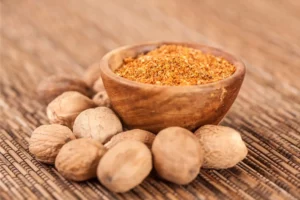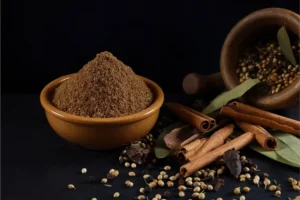India has a long and rich history of using black pepper in its cuisine and as a medicinal usage. Today, black pepper remains a staple ingredient in many Indian dishes, and its demand continues to grow. While India is one of the major producers of black pepper in the world, it also imports a significant amount of this spice from other countries to meet the domestic demand. The major countries from which black pepper is imported to India include Vietnam, Indonesia, Sri Lanka, and Malaysia. These countries are known for their high-quality black pepper, which is valued for its unique aroma, flavor, and medicinal properties. In this article, we will explore the global black pepper trade, the cultivation of black pepper in India, and the challenges and opportunities for importing black pepper to India.

Black Pepper Cultivation in India
Black pepper cultivation in India is concentrated mainly in the southern states, with Kerala being the largest producer, accounting for nearly 75+% of the total black pepper production in the country. Other major black pepper-producing states in India include Karnataka, Tamil Nadu, and Maharashtra. These states have favorable climatic conditions and soil types that are suitable for black pepper cultivation. The black pepper grown in these regions is known for its unique aroma, pungency, and flavor, and is in high demand both domestically and globally. India is the world’s largest consumer and importer of black pepper, and the domestic production meets only about 20% of the country’s total demand.
Despite being a major producer of black pepper, Indian farmers face several challenges that have led to increased imports of black pepper from other countries. These challenges include declining soil fertility, inadequate irrigation facilities, low productivity, and pest and disease attacks. In addition, the lack of modern farming techniques and technologies, as well as the limited availability of credit and government support, have also contributed to the decline in black pepper production in India. As a result, Indian importers have had to rely on imports from countries like Vietnam, Indonesia, and Sri Lanka to meet the growing domestic demand for black pepper. The import of black pepper has also increased due to the preference of Indian consumers for high-quality black pepper from other countries.
Challenges in Black Pepper Import to India
Importing black pepper to India can be a challenging process due to several factors. One of the primary challenges faced by importers is the high fees and duties imposed by the Indian government. In addition, the process of finding legitimate buyers and sellers can be complicated, and importers must exercise caution to avoid fraudulent transactions. The cost of importing black pepper can also be significant, as it involves not only the cost of the product itself but also the cost of transport, insurance, and other fees.
Another significant challenge faced by importers is ensuring the quality and safety of the imported black pepper. Importers must take measures to ensure that the product meets the required quality standards and is not contaminated with harmful substances. Legal issues can also arise, such as intellectual property disputes, trademark infringement, and customs-related issues. Finally, logistical challenges, such as the lack of adequate storage and distribution infrastructure, can also impact the import of black pepper to India. All of these challenges add complexity to the import process, making it essential for importers to work with reputable suppliers and partners to ensure a smooth and successful import operation.
Despite these challenges, the demand for black pepper in India continues to grow, with the country importing more than 20,000 metric tons of black pepper annually. This demand is driven by the growth of the food industry, as well as the increasing popularity of black pepper as a health supplement. As such, overcoming the challenges of black pepper import to India remains critical for importers looking to tap into this growing market.
Future Prospects of Black Pepper Import to India
Future of black pepper import to India looks promising, as the demand for this spice continues to rise. According to a report by IMARC Group, the Indian black pepper market is expected to grow at a CAGR of around 5% during 2021-2026. The growth is driven by several factors, including the increasing popularity of black pepper as a food flavoring agent and health supplement, as well as the growth of the food and beverage industry in India. In addition, the rise of e-commerce and the increasing trend of online grocery shopping is expected to boost the demand for black pepper in India.
As for the import volume, the Indian government has set a target to reduce the import of spices by 15% in the next three years. However, it is still expected that India will continue to import a significant amount of black pepper in the future. In 2020, India imported around 26,500 metric tons of black pepper, with Vietnam being the largest exporter, accounting for around 55% of the total imports. Indonesia, Sri Lanka, and Malaysia are also significant exporters of black pepper to India. While the exact amount of black pepper that India will import in the future is difficult to predict, it is clear that the demand for this spice will continue to grow, making it an attractive market for black pepper exporters around the world
Our Blogs are Amazing

Journey To Wellness: The Key Benefits Of Rosemary Herb
Rosemary herb is well known for its fragrant aroma and needle like leaves. Its popularity

What is The History Of Nutmeg? A Journey Through Time
The history of nutmeg covers centuries and continents, resulting in a captivating trip through time.

Unique Taste of India: Indian Spices Included In Garam Masala Powder
The significant use of spices in the Indian dishes is recognised for its rich and

